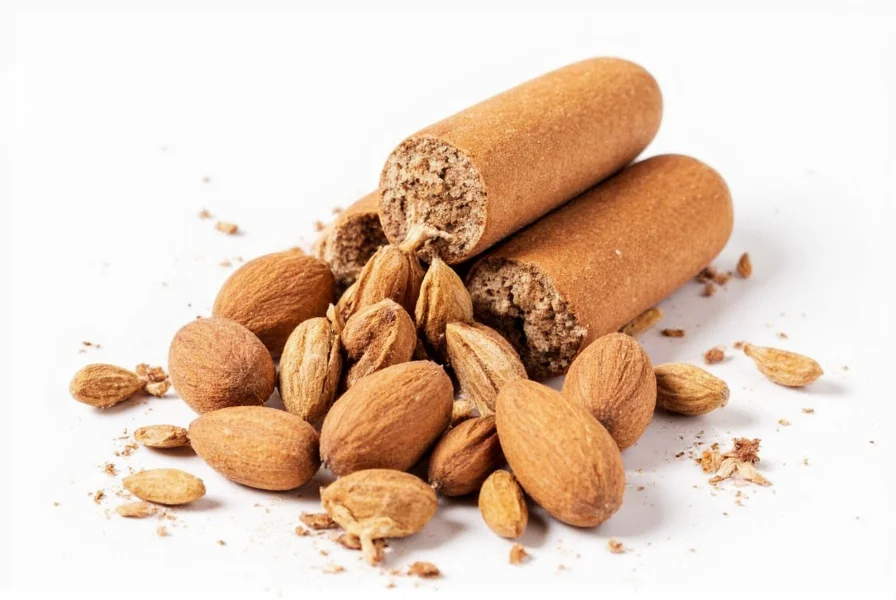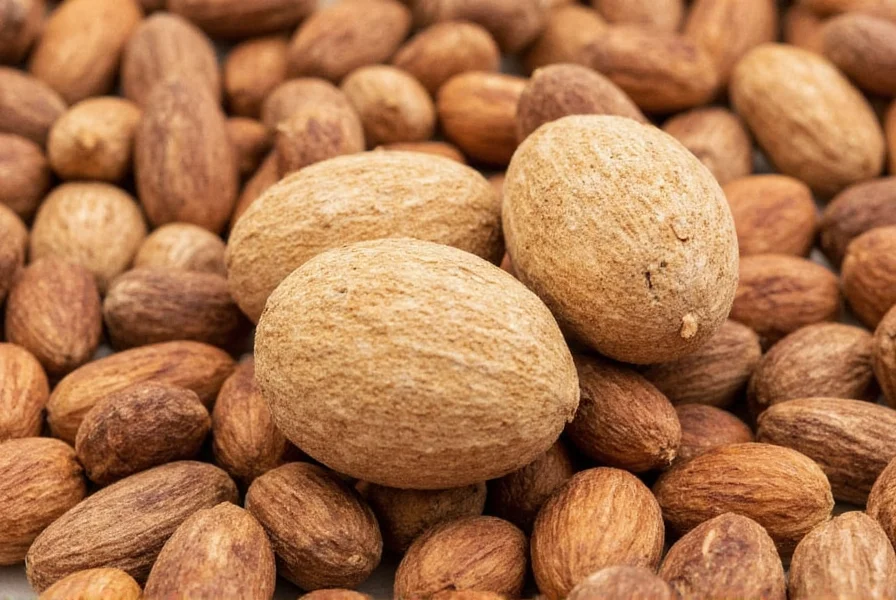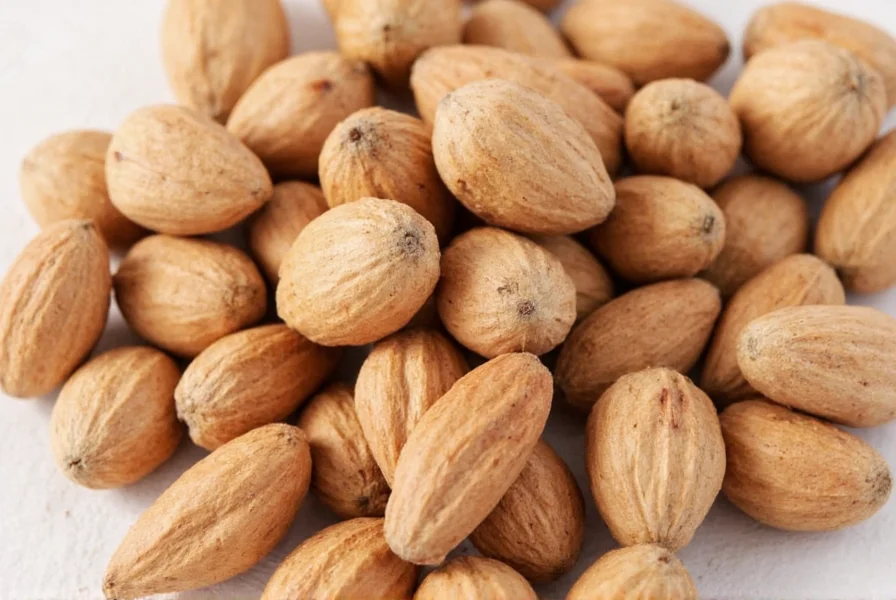Nutmeg meaning extends far beyond just a kitchen spice. This versatile term has evolved through centuries of cultural exchange, trade, and linguistic development. Understanding the complete picture requires examining both its primary botanical definition and its complex social history.
The Spice That Shaped History
Nutmeg, scientifically known as Myristica fragrans, is the seed of an evergreen tree native to the Banda Islands in Indonesia. This precious spice was so valuable during the Age of Exploration that it sparked international conflicts and drove European colonial expansion. Dutch traders once controlled the nutmeg trade so tightly that they would render the spice sterile by soaking it in lime juice before export.

Culinary professionals and home cooks alike prize nutmeg for its warm, slightly sweet flavor profile that enhances both sweet and savory dishes. From classic béchamel sauce to holiday eggnog, this spice remains indispensable in kitchens worldwide. The seed contains myristicin, an organic compound that contributes to its distinctive aroma and flavor.
Etymological Journey of the Word
The term "nutmeg" entered the English language around 1600, derived from the Old French "nois muscade" or Latin "nux muscatus," literally meaning "musky nut." This name reflects both the nut-like appearance of the seed and its distinctive fragrance. The word's evolution demonstrates how language adapts to incorporate foreign concepts through trade and cultural exchange.
Historical Slang Usage and Cultural Context
During the mid-20th century in Britain, "nutmeg" developed as slang referring to people of mixed racial heritage, particularly those with one white and one Black parent. This usage emerged from playground terminology where "jam roly-poly" represented mixed-race children (jam being mixed fruit), and "nutmeg" represented those with one white parent.
Unlike the spice meaning which remains positive and widely accepted, this slang usage carries problematic historical baggage. By the late 20th century, this term was increasingly recognized as derogatory, though some communities attempted reclamation. Today, most style guides and cultural sensitivity resources recommend avoiding this usage entirely due to its offensive connotations.
Distinguishing Between Meanings in Modern Communication
Context remains crucial when encountering the term "nutmeg". In culinary, botanical, or historical trade discussions, the reference is almost certainly to the spice. In discussions of race relations, particularly regarding British social history, the term might appear in historical contexts but should be handled with appropriate sensitivity.
Language professionals note that the slang usage has largely disappeared from contemporary discourse, replaced by more respectful terminology. When researching historical documents, however, understanding both meanings helps interpret context accurately.
Related Terminology: Mace and Nutmeg
Many people don't realize that mace and nutmeg come from the same fruit. Mace is the lacy red aril (covering) surrounding the nutmeg seed. This relationship explains why these spices share similar flavor profiles while maintaining distinct characteristics that chefs utilize differently.
| Term | Primary Meaning | Secondary Meaning | Current Appropriateness |
|---|---|---|---|
| Nutmeg | Spice from Myristica fragrans seed | Historical slang for mixed-race person (UK) | Spice meaning: Always appropriate Slang meaning: Offensive, avoid usage |
| Mace | Spice from nutmeg's aril covering | No significant secondary meaning | Always appropriate in culinary context |
Practical Guidance for Proper Usage
When discussing nutmeg meaning in contemporary contexts, follow these guidelines:
- Assume the spice meaning unless context clearly indicates otherwise
- Avoid the slang usage entirely due to its offensive history
- When encountering the term in historical texts, acknowledge the context while recognizing modern perspectives
- Teach children about the spice meaning while explaining why certain historical usages are inappropriate
Understanding the complete nutmeg meaning etymology and usage history helps prevent miscommunication while respecting linguistic evolution and cultural sensitivity. This comprehensive approach to word meanings represents how language continually adapts while carrying historical significance.

Conclusion
The journey of the word "nutmeg" from precious spice to problematic slang and back to primarily culinary usage demonstrates language's complex relationship with culture and history. While the spice meaning remains universally accepted and valuable, the historical slang usage serves as a reminder of how language can perpetuate harmful stereotypes. Modern understanding requires acknowledging both meanings while making informed choices about appropriate usage in contemporary communication.
Frequently Asked Questions
What is the primary meaning of nutmeg?
The primary meaning of nutmeg refers to the seed of the Myristica fragrans tree, a valuable spice used in cooking and baking worldwide. This aromatic seed has been traded internationally for centuries and remains an essential ingredient in many culinary traditions.
Is nutmeg still used as a racial slur today?
While nutmeg was historically used as a derogatory term for people of mixed racial heritage in Britain, this usage is now widely recognized as offensive and inappropriate. Most contemporary style guides and cultural sensitivity resources recommend avoiding this usage entirely due to its harmful connotations.
How does nutmeg differ from mace?
Nutmeg and mace come from the same fruit. Nutmeg is the seed itself, while mace is the lacy red covering (aril) that surrounds the seed. Though they share similar flavor compounds, mace has a more delicate, citrusy flavor compared to nutmeg's warmer, sweeter profile. Chefs often use them differently in recipes based on these flavor distinctions.
What does the word nutmeg mean etymologically?
The word nutmeg derives from the Old French "nois muscade" or Latin "nux muscatus," meaning "musky nut." This name reflects both the nut-like appearance of the seed and its distinctive musky fragrance. The term entered English around 1600 during the peak of the spice trade.
Why was nutmeg so valuable historically?
Nutmeg was extremely valuable during the Age of Exploration because it grew only in a small region of Indonesia, making it rare in European markets. Its preservative qualities, medicinal uses, and distinctive flavor made it highly sought after. At its peak, nutmeg was worth more than its weight in gold, driving colonial conflicts as European powers fought to control the spice trade.











 浙公网安备
33010002000092号
浙公网安备
33010002000092号 浙B2-20120091-4
浙B2-20120091-4